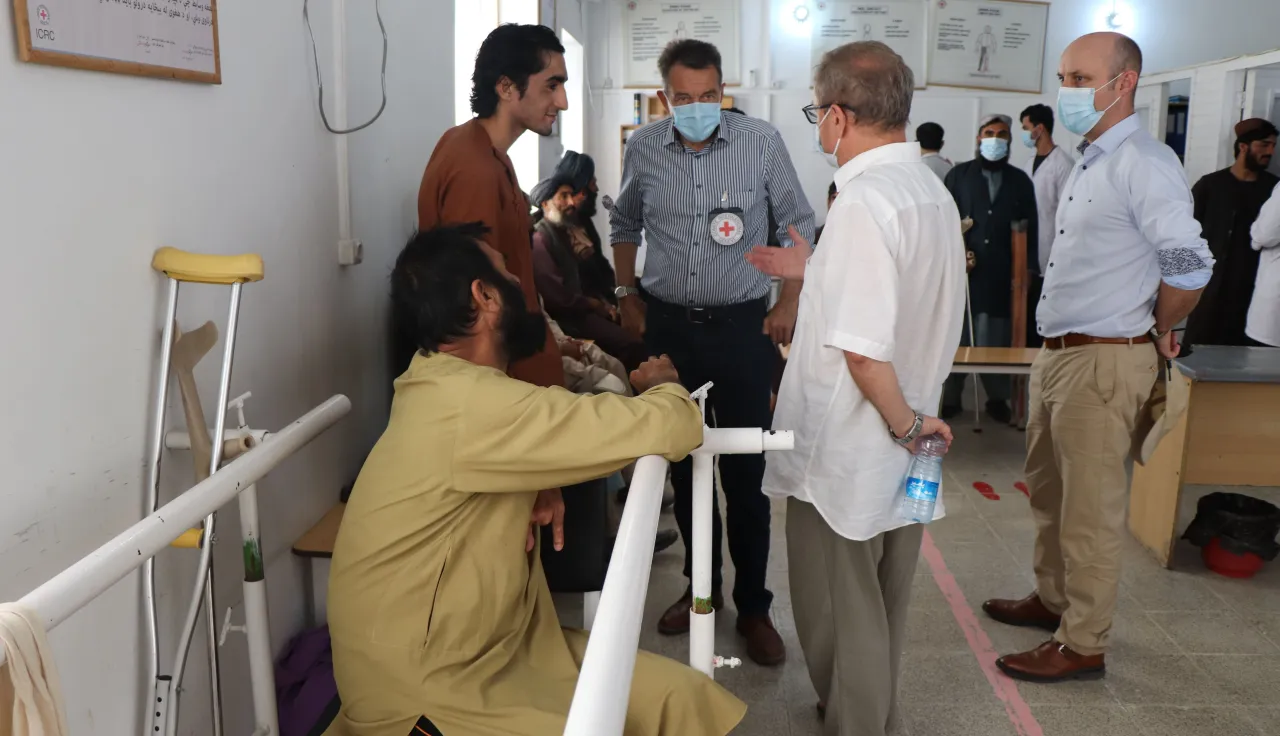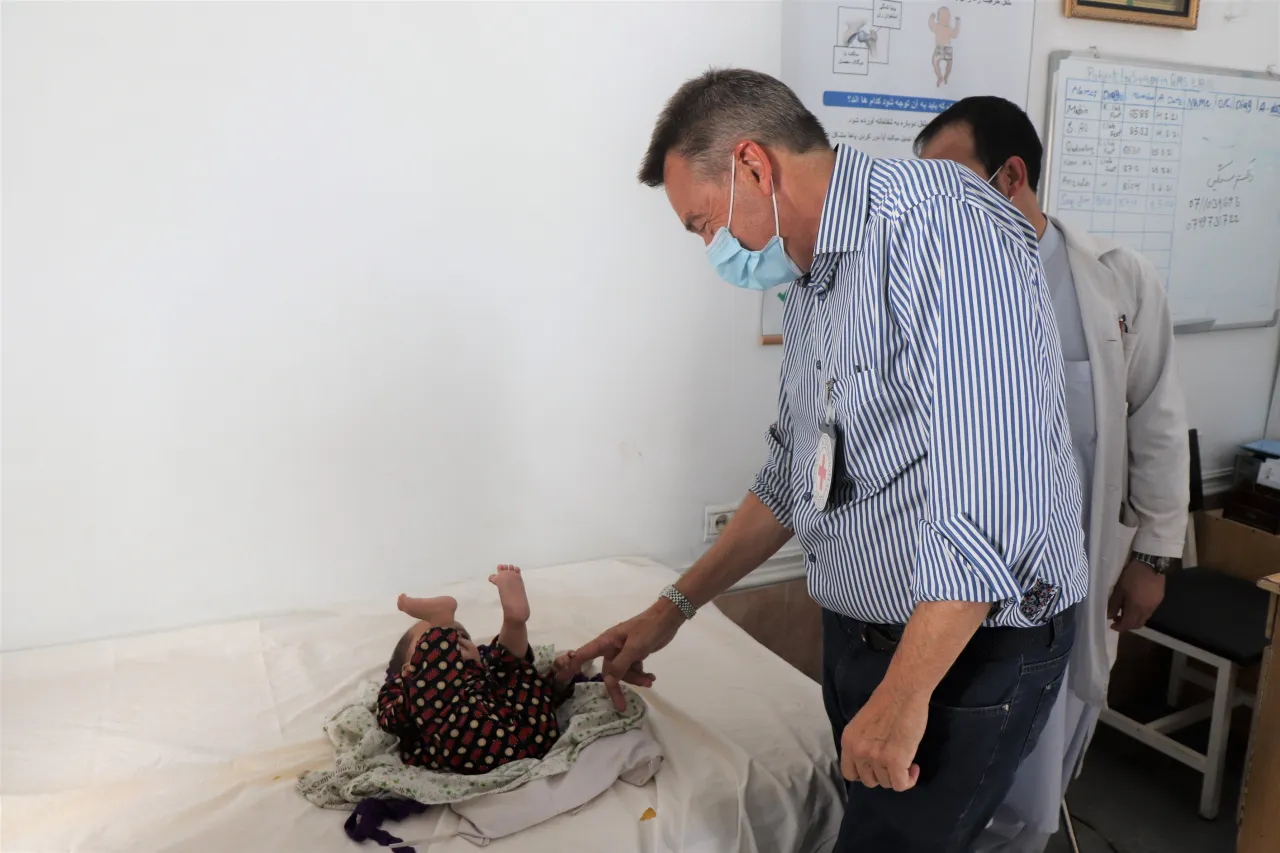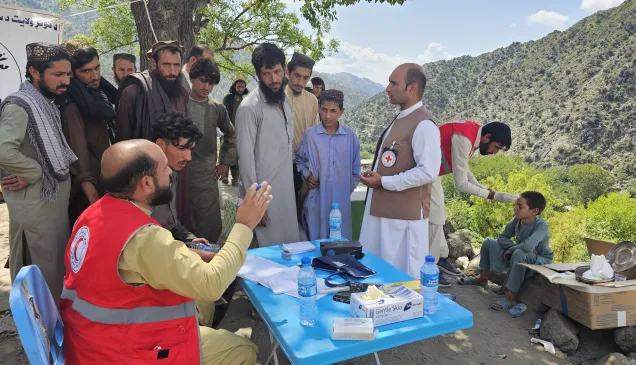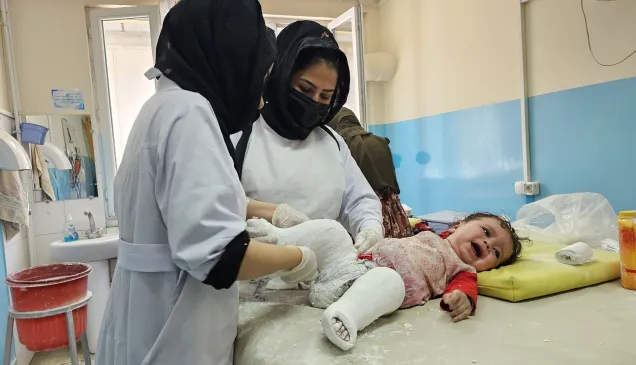Secretary-General Guterres, Excellencies,
I have just returned from Afghanistan, where I met with the Taliban leadership and visited ICRC's humanitarian operations, which have continued largely uninterrupted.
Across the country, the magnitude of need is evident – from social services to protection. Travelling from Kabul to Lashkar Gah and Kandahar I saw remnants of war: freshly dug graveyards by the roadside, destroyed homes and infrastructure.
Primary health care is on the brink of collapse, water services failing, food prices exorbitant.
Afghans welcome the end to fighting: yet they are deeply concerned for the future of diversity in a fragmented society – women and minority groups first and foremost.
People told me they felt betrayed: by the international community's tunnel-vision focus on their own nationals at Afghans' expense... they question the honesty and the neutrality of the aid that left with the international security forces in their hour of need.
The risk of destabilising the entire region is real. This is not in the interests of anyone – not neighbouring countries nor the international community overall.
It is critical that we find extraordinary measures, even if temporary, to ensure continued and scaled humanitarian support and to repair the economic and financial system.
A long period of limbo, where investment hinges on political recognition of the government, will only lead to an even deeper humanitarian crisis.
Colleagues, today I also sound a warning on "conditional humanitarianism". Humanitarian action should not be conditioned to political, human rights or other stipulations. This is a dangerous pathway. It weakens respect for International Humanitarian Law and for humanitarian actors; and it erodes the principles of neutral, independent and impartial humanitarian action.
Instead, humanitarian action can be a first step towards building trust, stability and compliance with more ambitious legal frameworks.
Respect for diversity is conducive to humanitarian impact, it must not be a condition for humanitarian action.
Colleagues, the ICRC continues to work in Afghanistan, as we have for 30 years. We will stay the course and scale our work.
With the Afghan Red Crescent, we will significantly increase the number of health structures we support, we will work to ensure the dignity of detained populations, to connect separated families across borders, including the immediate need to reunite children with their families.
The ICRC anticipates needing 150 million Swiss Francs through the year 2022, recognising that our ability to deliver also depends on systems and structures continuing to function in-country and on continuing international support.
Colleagues, I do not underestimate the difficulties of this situation; and the compromises that may be needed. But I remain optimistic that solutions will be found. We do not have a choice: too many lives hang in the balance.
Thank you.





